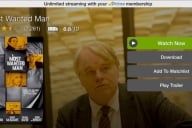You have /5 articles left.
Sign up for a free account or log in.
Pity me, dear reader, as the hard drive on my notebook computer crashed earlier this month. While not as traumatic as a death in the family, the end of a marriage or long-term relationship, or sitting in the passenger seat the first time your teenager drives your car, the days following the crash were dark ones. Very difficult, very frustrating, and painfully unproductive.
It was not supposed to be this way. A crashed computer is one of those possible, but seemingly low-risk events that are part of life in our digital age. Moreover, I thought I was safe. I have suffered and survived several hard drive crashes over the past two decades. Consequently, I run the back-up utility religiously, several times each week and sometimes daily. Additionally, I periodically copy key files. After all, my computer – my data, my project files, my contact lists, my email archives – are my life, transferred and compressed into gigabytes.
Confession: I knew this was coming. My computer – the hard drive – was making some unusual noises in the weeks prior to the crash. My plan was the muddle through with back-ups, then purchase a new computer early in August, after returning from two weeks of travel.
Alas, it was not to be. The drive crashed three days before my scheduled return.
But here’s the curious thing: the impending failure of my hard drive was anticipated. Not just by me, on the basis of odd noises emanating from my computer, but also to the company that made the computer and the company that manufactured the hard drive.
How do I know this? Well, then I took my crashed computer to the manufacturer’s service center, the tech immediately offered to replace the hard drive – at no cost! He scanned the bar code on my computer and the bar code on the hard drive. Then, without a word from me, he replaced the old, crashed drive. He mentioned, in passing, that there were “problems” with the old (now dead) drive and that it was company policy to replace them at no cost. Unfortunately, he could not restore the data on my crashed drive. For that I would have to go elsewhere.
It’s all very curious. Without asking, the manufacturer, no doubt acting in concert with the hard drive supplier, replaced the drive on my four-year-old notebook, a computer that was a year past the extended warranty.
So here’s the burn: service records from other users provided evidence of a problem. There was good reason to believe that my computer would crash. They knew! Why was I not told?
Software providers routinely update their products over the Internet, usually to fix bugs or address security issues. Auto manufacturers must make product recalls if service records point to potential problems with critical components or systems. Faulty agricultural and products – spoiled food (meat, vegetables, and eggs), baby cribs, medicines and cosmetics - are also, by law, subject to recall. My quick scan of the web found a number of computer companies that have issued recall notices for overheating batteries used in their notebook computers.
Are not hard drives a critical component? At what point do computer companies and their suppliers have an obligation inform us of an impending problem – in this case the high probability of a crashed hard drive?
Which would you prefer: notice of an impending hard drive crash ahead of the event, or a replacement drive after the crash?
What say you, dear reader? Do computer companies have an obligation to notify us of impending hardware problems? And what strategies do you use to back-up your files and protect your data?
Let’s discuss – and let’s hope that some industry execs are listening!






